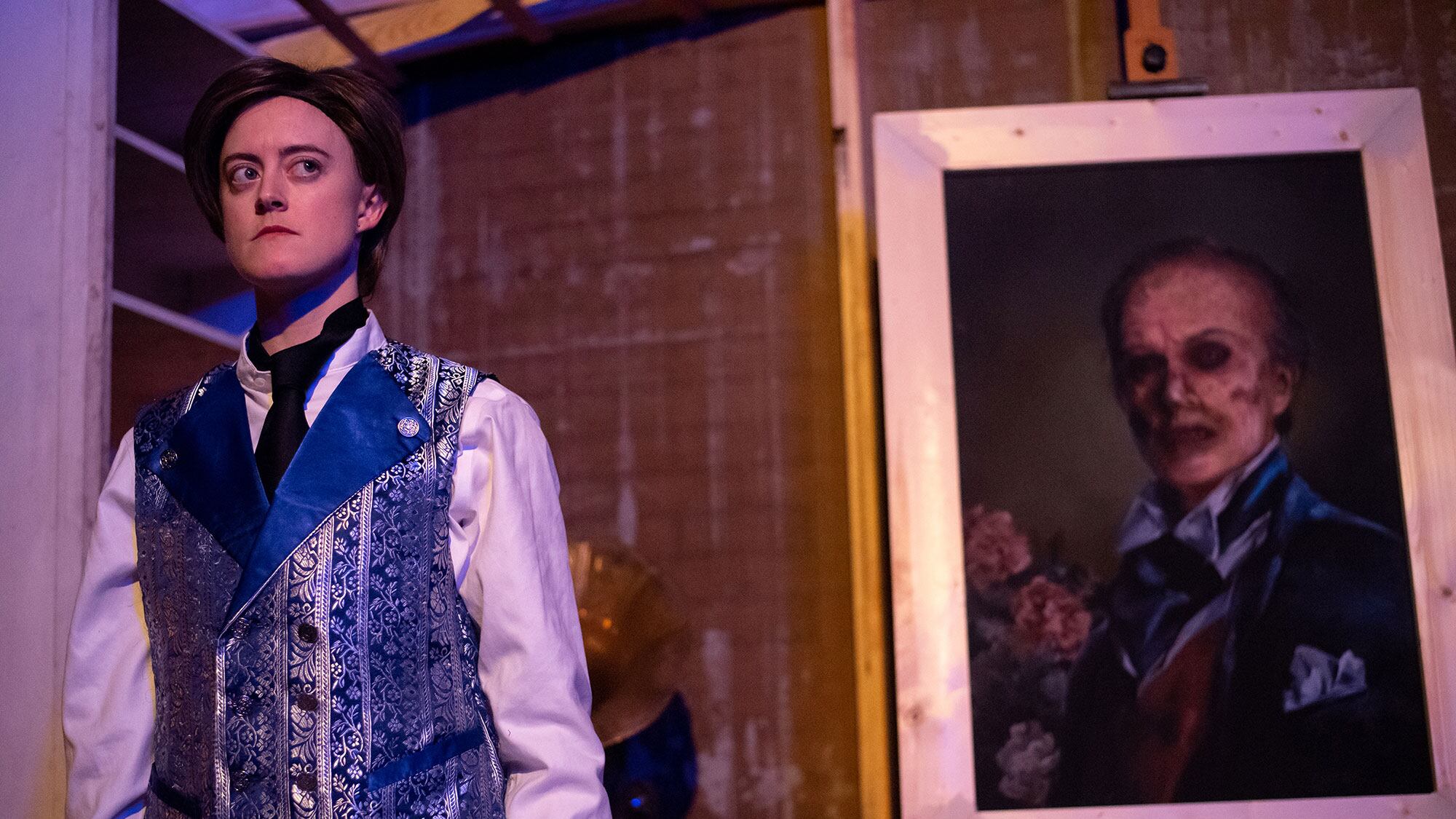Much as the enduring fame of one of Oscar Wilde's best-known works would doubtlessly have both thrilled and confounded its creator. The Picture of Dorian Gray, with its narrative conceit of a portrait aging as its real-life subject does not, has become disconcertingly common by spawning countless limp parodies. Wilde's misquoted epigrams cram goth blogs, and the titular dandy's peculiar brand of immor(t)ality has propelled him toward supervillain status in both a Showtime series (Penny Dreadful) and a Sean Connery blockbuster (The League of Extraordinary Gentlemen).
For a story whose deathless charms depend so heavily on vicariously indulging in the pretensions of its elitist protagonists, familiarity can breed irrelevance. But what if, rather than merely watching the proceedings unfold, viewers could instead be swept up inside that glittering existence?
In 2015, Alisa Stewart founded the Experience Theatre Project with the express intent of distilling all that remains vital about the dramatic arts and processing that essence for 21st-century appetites. In a variety of spaces throughout her adopted home city of Beaverton, artistic director Stewart has guided the company across a variety of shows, including a gender-fluid The Taming of the Shrew, a steampunk version of The Tempest and last Halloween's haunted burlesque and séance The Rise of Houdini, but her emphasis has always been on immersive productions meant to place the audience within the action of a play.
As with the Experience Theatre Project's 2018 run of the classic Agatha Christie murder mystery The Mousetrap, audience members freely walk about the set of Dorian Gray while the action unfolds before them. In an effort to lure millennials via some semblance of interactivity, promenade-styled theatrical presentations have become increasingly popular in recent years, and embedding oneself within the Wildean sphere of urbane sophistication holds an obvious attraction. Except, of course, others will be along for the ride. "It is the spectator," Wilde wrote, "and not life, that art really mirrors," which has never seemed more ominous.
Although Experience Theatre Project encourages guests to cloak themselves in period-appropriate finery, economic practicalities preclude an outright dress code, and the second-weekend crowds were evenly divided among normcore couples, monied creatives and the sort of exurban art enthusiast delighted to break out the flounciest ascot. The Beaverton Masonic Lodge, host for this run of shows, carries the proper heft of ornate gravity, but a flimsiness accompanies interiors necessarily readied for the quick change of successive drawing rooms. It all feels, once again, rather common and so perfectly mundane that the ear thrills anew to the author's divine bons mots volleyed from moving targets.
Stewart, directing her own adaptation, betrays a disarming prescience for anticipating just how the thickets of attendees will congregate. With effective choreography of any ordinary play already testing the capacity of many area directors, blocking performers' movements to heighten dramatic effect and maximize lines of visibility should be exponentially more challenging once the audience perspective becomes an unknown variable. Nevertheless, through subtle feints of intent from the actors or a predictive feng shui orchestrated through the ever-shifting décor, we somehow were always at an ideal vantage to catch first sight of an outdoor intruder or spot the visage of Dorian's lost love alongside our tortured antihero.
SEE IT: The Picture of Dorian Gray is at the Beaverton Masonic Lodge, 4690 SW Watson Ave., experiencetheatreproject.org. 7:30 pm Thursday-Saturday, 2 pm Sunday, through Feb. 17. No show Feb. 14. $36-$160.
